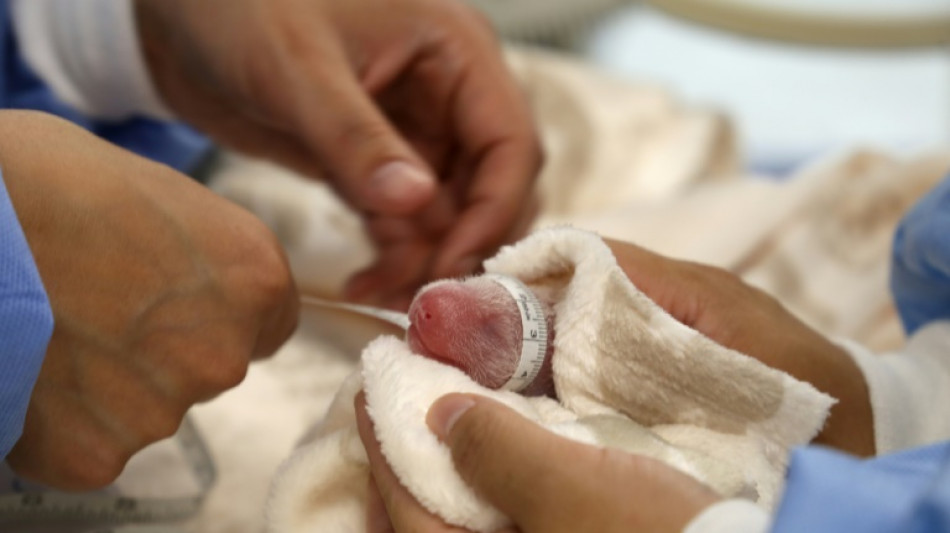
-
 Palestinians welcome ICC arrest warrants for Israeli officials
Palestinians welcome ICC arrest warrants for Israeli officials
-
Senegal ruling party wins parliamentary majority: provisional results

-
 Fiji's Loganimasi in for banned Radradra against Ireland
Fiji's Loganimasi in for banned Radradra against Ireland
-
New proposal awaited in Baku on climate finance deal

-
 Brazil police urge Bolsonaro's indictment for 2022 'coup' plot
Brazil police urge Bolsonaro's indictment for 2022 'coup' plot
-
NFL issues security alert to teams about home burglaries

-
 Common water disinfectant creates potentially toxic byproduct: study
Common water disinfectant creates potentially toxic byproduct: study
-
Chimps are upping their tool game, says study

-
 US actor Smollett's conviction for staged attack overturned
US actor Smollett's conviction for staged attack overturned

Berlin zoo panda gives birth to twins for second time
Berlin Zoo said Friday its resident panda Meng Meng had delivered twins for the second time, hailing the rare births as a boost to the endangered creatures.
The cubs were born on Thursday, weighing 136 and 169 grams (around five and six ounces), and measuring just 14 centimetres (5.5 inches), the zoo said.
They are both doing well and are being cared for by their mother and panda experts, although the zoo added the next few days would be "critical".
"I am relieved that the two were born healthy," zoo director Andreas Knieriem said in a statement.
"With fewer than 2,000 adult giant pandas in their natural habitat, every single cub is an important contribution to the conservation of this endangered species."
The gender of the cubs has not yet been determined.
Pandas are born naked, deaf, blind and pink, and it takes some time for the creatures' typical black and white markings to develop.
Zoo visitors will not yet be able to see the new arrivals, who will spend their early days hidden from public view in the rear area of the panda enclosure.
Meng Meng and male panda Jiao Qing arrived in Berlin in 2017 on loan from China.
Famed for its "panda diplomacy", China has dispatched its national treasure to only about a dozen countries as a symbol of close relations.
In 2019, Meng Meng delivered twins called Pit and Paule, which were the first of the animals to be born in Germany.
As part of such loan agreements, pandas born overseas must be returned to China, and Pit and Paule were sent to live in Chengdu last year.
China had previously given three pandas to Germany but the last one, 34-year-old Bao Bao, died in Berlin in 2012, having become the oldest male panda in the world.
Environmental group WWF says about 1,860 pandas remain in the wild in China.
A.Gasser--BTB



